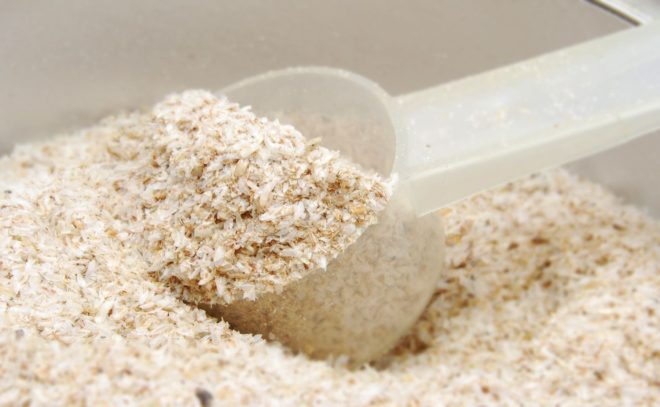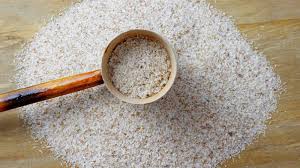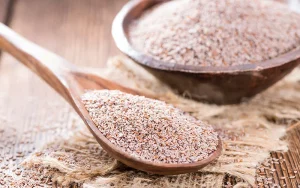
6 Health Benefits of Psyllium Husk to Prevent Constipation
Psyllium husk is one of the most popular laxatives on the market. It is also effective in controlling diabetes and improving heart health. Psyllium husk is a great fiber supplement used to treat constipation.
Psyllium husk, also known as Isabgol, is popular for its laxative properties and is known as a remedy for constipation. However, fiber supplements have many health benefits beyond constipation. Psyllium husk contains soluble fiber that is good for digestion and heart health. It can be used to control cholesterol and blood pressure as well as diabetes. It is available over the counter in powder, capsule and packaged form. However, consuming too much of it can be harmful and can cause side effects such as allergies and gastrointestinal problems. Read more to learn how to consume psyllium husk and how it can help our body.
![]()

What is psyllium husk?
Psyllium husk is a natural fiber derived from the seeds of the psyllium plant. It is often used as a dietary supplement to improve digestion, reduce constipation, and help control blood sugar and cholesterol. This non-fermentable, gel-forming fiber is also good for weight loss.
What is the use of psyllium husk?
Psyllium husk is used for:
1. Treat constipation
Psyllium husk acts as a laxative, absorbing water and forming a gel that aids in digestion. A study published in the International Journal of Molecular Sciences stated that it helps the intestines by helping retain water in the intestines, making easier stools.
2. Irritable bowel syndrome (IBS)
It can also reduce symptoms associated with IBS. This study published in the Turkish Journal of Gastroenterology noted that it helped reduce pain in the body. IBS patients who participated in this study reported a 90% reduction in their symptoms.
3. Cholesterol control
This use of psyllium has been shown to help with heart disease by lowering total cholesterol and LDL levels. A study published in the American Journal of Clinical Nutrition found that participants who ate 5.1 grams of psyllium husks twice daily for 26 weeks had a decrease in cholesterol.
4. Diabetes management
Eating more fiber may help control diabetes. This makes it beneficial for diabetes management.
5. Weight management
This increases feelings of fullness and may aid in weight loss. A study published in Nutrition Today found that a two-month study in 40 obese people with type 2 diabetes led to a significant weight loss of 3.7 kg compared to a placebo.
6. Blood pressure control
Blood pressure reductions have also been observed with the consumption of psyllium husk, especially in people with high blood pressure. A study published in Food Science & Nutrition found that dietary fiber lowered participants’ systolic blood pressure without increasing diastolic blood pressure (DBP).
What is the prescribed dosage of psyllium husk?
The amount of fiber that should be taken with food is usually 5 to 10 grams per day. The starting dose is 5 grams three times a day with a glass of water. If done well, it is recommended that the dose be gradually increased to 20 to 25 grams per day for good results. Drinking plenty of water is important to maximize its benefits and prevent intestinal problems.
Dietary fiber can come in several forms:
- Powder – Mix 1-2 teaspoons with at least 1 glass of water or liquid. Mix well and drink immediately to prevent thickening.
- Capsules – Take 5-6 capsules with a glass of water, usually 1-3 times daily.
- Wafers – Chew thoroughly before swallowing and follow directions on the package.
- Packets – Powder-like, dissolve the contents in water and drink immediately.
Always make sure you have enough liquid to prevent choking and to be effective.
Who should not eat psyllium husk?
People with the following conditions should not use psyllium husk:
- People who are allergic to psyllium should not use it.
- People with intestinal or intestinal strictures are at risk of serious problems.
- People with swallowing problems should avoid psyllium as it can cause constipation.
- Fecal impaction is the accumulation of large amounts of feces in the rectum or colon. People with fecal impaction should not consume psyllium as it can worsen the condition.
- If you experience symptoms such as bleeding or severe abdominal pain, it is recommended that you stop using this medication and seek immediate medical attention.
- People with kidney disease are advised to be careful as psyllium can affect fluid balance.
What are the side effects of psyllium husk?
Psyllium husk can cause many side effects, including bloating, gas, stomach pain, upset stomach, constipation, diarrhea and nausea. These symptoms can occur especially when you first start taking psyllium or if you take too much. Some people can experience serious allergic reactions, such as itching, difficulty breathing, swelling of the face or throat. This needs to be treated immediately. Psyllium can also cause stomach or intestinal problems if not consumed in sufficient amounts.
Summary
In addition to treating constipation, psyllium husk has many other health benefits. It aids in digestion and may help reduce symptoms of gastrointestinal discomfort. In addition, it may help control blood sugar, cholesterol, and blood pressure. However, fiber also has some risks, so people should consume it in moderation.

